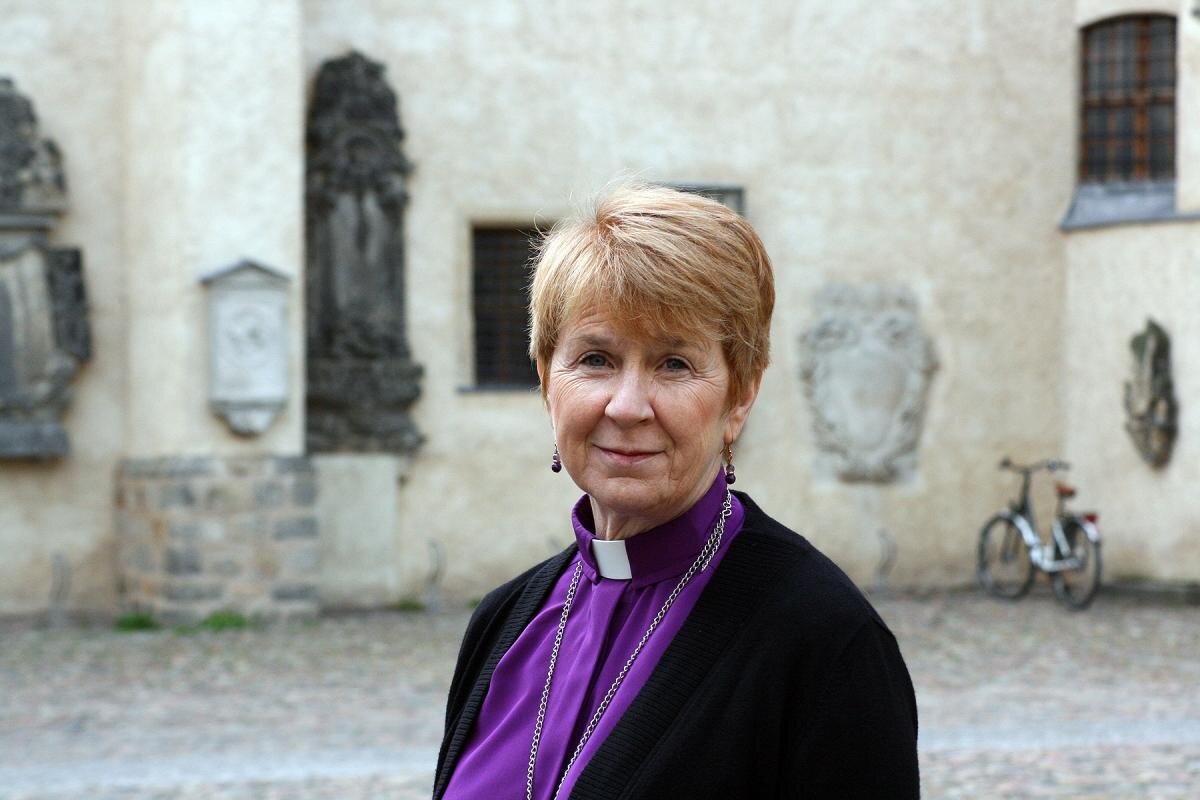Bishop Hutterer: The languages of our heart
“And at this sound the crowd gathered and was bewildered, because each one heard them speaking in the native language of each. Amazed and astonished, they asked, ‘Are not all these who are speaking Galileans? And how is it that we hear, each of us, in our own native language? Parthians, Medes, Elamites, and residents of Mesopotamia, Judea and Cappadocia, Pontus and Asia, Phrygia and Pamphylia, Egypt and the parts of Libya belonging to Cyrene, and visitors from Rome, both Jews and proselytes, Cretans and Arabs—in our own languages we hear them speaking about God’s deeds of power.’ All were amazed and perplexed, saying to one another, ‘What does this mean?’”
Photo by John Fowler on Unsplash
Yá'át'ééh. When my husband and I visited Senegal in early 2020, we were graciously hosted by Rev. Adama Faye, President of the Lutheran Church of Senegal. The Grand Canyon Synod is blessed to be their sole companion synod.
We toured the towns and countryside in a whirlwind of meetings, sightseeing, worship, praise, food, and fellowship. While every stop provided a chance to experience hospitality and make meaningful connections, I did regret not being able to speak to my hosts in their language of choice.
Senegal is home to 36 languages. While French is the official language, less than 1 in 4 Senegalese can speak it. Wolof is the language used by 80% of the population. I relied on the Senegalese to speak what English they could to me. Especially during worship and songs, I could only guess as to what was being said. I was moved, but I knew those testimonies in my own native language would have made the experience all the more enriching.
I recalled that visit to Senegal and the power of hearing the word of God in your native language while recently visiting House of Prayer in Rock Point, on the Navajo Nation. Pastor Jacqui Pagel and I were there to affirm candidates in the new Hodza Yaa Ahalyani (Wisdom Keepers) Program. Deacon Kate Adelman has been instrumental in the development of this multi-year curriculum of bible study, pastoral care, and ceremony leadership.
For those of us who count English as our mother tongue, it is easy to take for granted all the ways the word of God reaches us in the modern world. It is easy for us to overlook the centuries of development needed to get our Scripture, liturgy, music, and literature into English. We can forget that the English language did not exist in the time of Christ.
For many Rock Point residents, Navajo is the mother tongue, or Navajo is the language of the sacred. Unfortunately, our seminaries have no offerings in the Navajo language. While there are Navajo Bibles (listen here), there are few ways to raise up and nourish leaders inside Navajo culture.
And so the Wisdom Keepers Program is an exciting new way to communicate Jesus, connect people, and create possibilities. It is an amazing opportunity for accompanying the local community as we rediscover the Gospel as interpreted through Navajo culture, traditions, and language.
The Hodza Yaa Ahalyan candidates — Benedict Bedoni, Patty Charley, and Patterson Yazzie — will be simultaneously learning from and educating the people who will be sharing their particular offerings of knowledge: Deacon Kate Adelman, Pastor Conrad Braaten, Pastor Kurt Fangmeier, Pastor Peter Perry, Pastor Scott Summers, and Mike Wold.
I ask you to remember these people in your prayers. I ask you to pray that the Holy Spirit fills them with understanding as in the time of Pentecost.
And for all of us, may the good news of Jesus reveal itself new to our ears.
I leave you with John 3:16, translated from Navajo to English:
Háálá Diyin God éí nihokáá' dine'é t'áá íiyisí ayóó'ájó'níigo bąą haye' t'ááłá'í há yizhchínígíí baazhníłtį́, áko t'áá háiida boodlą́ągo baa dzólíhígíí éí doo ádoodįįł da, nidi iiná doo ninít'i'ii bee hólǫ́ǫ dooleeł.
For God so greatly loved and dearly prized the world that He gave up His only unique Son, so that whoever relies on Him shall not be lost but have everlasting life.
The Rev. Deborah K. Hutterer
Bishop
Grand Canyon Synod of the ELCA



